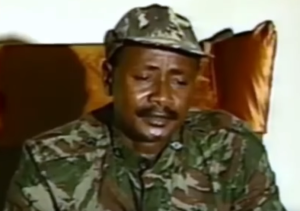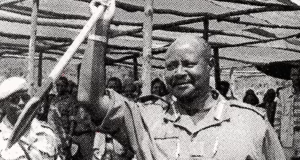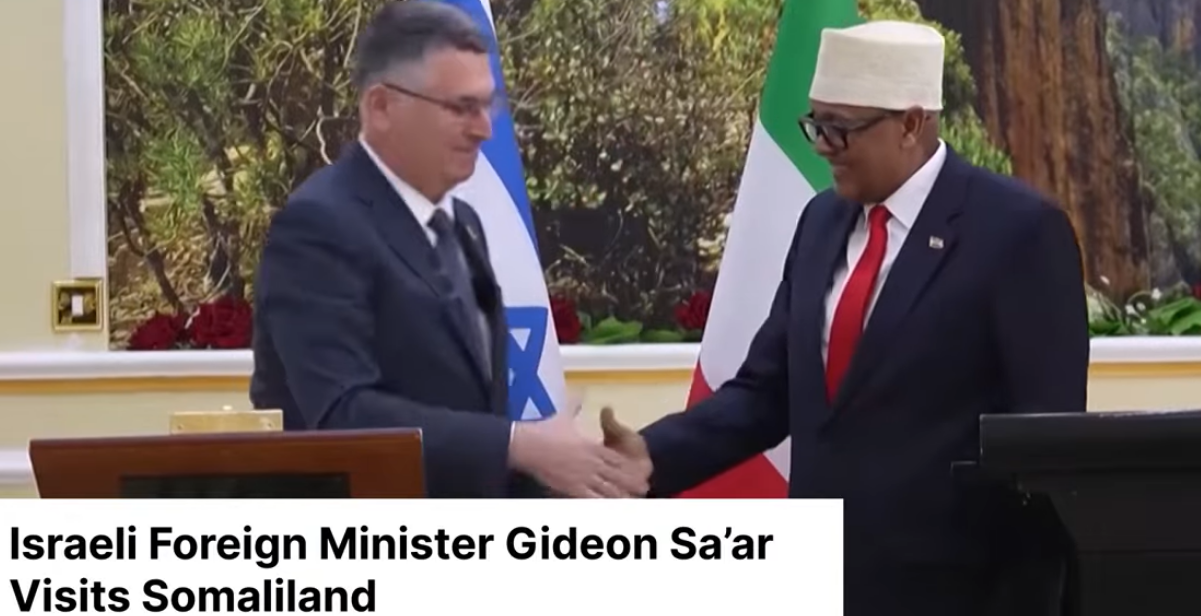By Zacharia Kanyonyozi
Photos: Kampala International University\YouTube Screenshots\Wikimedia Commons
The Late Lt. Gen. Paul Lokech (promoted posthumously), during his tour of duty in Somalia with the Uganda People’s Defence Forces, was lionized by the charmingly apt sobriquet “Lion of Mogadishu”. This was because of majestic bearing and his always being on a mission to defeat criminal elements.

It was not easy, by any measure.
Due to sniper fire all over war-torn Mogadishu, people were ferried down into Bunkers for their safety and Dictator Museveni, then visiting, also found himself in a Bunker.
Seemingly petrified, Dictator Museveni asked Lokech to save his hide: “The president came and said, ‘Paul, take me away from here’ and it was so touching’,” Lokech relates 4:39 minutes into this video.
This revelation of the true Dictator Museveni, against his well cultivated image as an invincible warrior, might be why Lokech is no longer with us.
Indeed, Dictator Museveni’s image as a He-man has to be preserved at all costs.
On August 8, 2005, another indicator of this was on full display when Dictator Museveni stayed away from the funeral of Sudan First Vice President John Garang. It was reported that he stayed away because he was totally devastated by Garang’s death, then Information minister and government spokesman James Nsaba Buturo said.
“I was not devastated, revolutionaries are never devastated,” Dictator Museveni huffed and puffed and blew Buturo into retirement as he was soon dropped from Dictator Museveni’s cabinet like a bad habit.

A carefully manufactured lie, behind which Dictator Museveni the dastardly man increasingly vanishes, elevates him from a farce into a figure chosen by providence to save Uganda (but not Ugandans). The purport of this lie is that Dictator Museveni is the greatest Ugandan, the greatest statesman and the greatest general of all time. Indeed, he is cast as a man (by his flunkies) fated to bring back the Bacwezi from a mythical world in order to rule over the wretched of the earth.
He hated Milton Obote because Obote revealed this.
“What Museveni fully guarantees and rewards handsomely is servile flattery and praises (sychophancy), of his greatness, alleged intrepidity, invincibility and as the only person alive who has all the answers to all the problems (some of them created by him) which afflict Uganda,” wrote Obote in Notes on Concealment of Genocide in Uganda, 1990.
Dictator Museveni, however, eats from the same trough as other genocidaires. That is why his actions are like there’s.

Let us show you how.
ABC News reported on January 25th: “As war rages in Gaza, civilians have repeatedly been told by Israel to go to the city of Deir al-Balah, in the center of the enclave, for safety.
The city lies below the Wadi Gaza, the line south of which Israel warned people to move starting in mid-October. And after a cease-fire in late November, Israel’s military issued multiple calls for civilians to travel to shelters in the city for their own safety.
Deir al-Balah has since swelled with internally displaced people, according to the United Nations. But the city has not been spared from the Israeli bombing campaign, according to the United Nations and international human rights organizations like Amnesty International.”
In 1987, Dictator Museveni said: “There was no policy of scorched earth. There was a policy of destroying foodstuff being used by the rebels. The population was warned in advance through the dropping of leaflets by helicopters written in vernacular. I repeat this: There was no policy of scorched earth. There has never been such a policy. What there was a policy to destroy food stocks that were assisting the rebels to continue disturbing the peace of the ordinary people. This was done after due notice was given to the population through dropping of leaflets in the disturbed areas of Gulu District well in advance, by the helicopters. These leaflets in vernacular were telling people to evacuate the fire areas where the security forces would clash with rebels, to safe zones.”
Yet, as in Gaza, the people were still exterminated.









